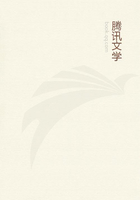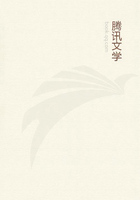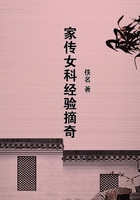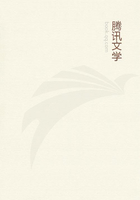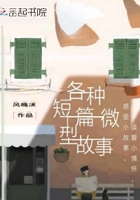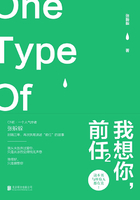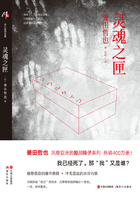"In winter he suffered very much from the frost. If he stretched out his feet they lay bare on the floor and froze, if he gathered them up the blood became all on fire in his legs, and this was great pain. His feet were full of sores, his legs dropsical, his knees bloody and seared, his loins covered with scars from the horsehair, his body wasted, his mouth parched with intense thirst, and his hands tremulous from weakness. Amid these torments he spent his nights and days; and he endured them all out of the greatness of the love which he bore in his heart to the Divine and Eternal Wisdom, our Lord Jesus Christ, whose agonizing sufferings he sought to imitate. After a time he gave up this penitential exercise of the door, and instead of it he took up his abode in a very small cell, and used the bench, which was so narrow and short that he could not stretch himself upon it, as his bed. In this hole, or upon the door, he lay at night in his usual bonds, for about eight years. It was also his custom, during the space of twenty-five years, provided he was staying in the convent, never to go after compline in winter into any warm room, or to the convent stove to warm himself, no matter how cold it might be, unless he was obliged to do so for other reasons. Throughout all these years he never took a bath, either a water or a sweating bath; and this he did in order to mortify his comfort-seeking body. He practiced during a long time such rigid poverty that he would neither receive nor touch a penny, either with leave or without it. For a considerable time he strove to attain such a high degree of purity that he would neither scratch nor touch any part of his body, save only his hands and feet."[184]
[184] The Life of the Blessed Henry Suso, by Himself, translated by T. F. Knox, London, 1865, pp. 56-80, abridged.
I spare you the recital of poor Suso's self-inflicted tortures from thirst. It is pleasant to know that after his fortieth year, God showed him by a series of visions that he had sufficiently broken down the natural man, and that he might leave these exercises off. His case is distinctly pathological, but he does not seem to have had the alleviation, which some ascetics have enjoyed, of an alteration of sensibility capable of actually turning torment into a perverse kind of pleasure. Of the founder of the Sacred Heart order, for example, we read that "Her love of pain and suffering was insatiable. . . . She said that she could cheerfully live till the day of judgment, provided she might always have matter for suffering for God; but that to live a single day without suffering would be intolerable. She said again that she was devoured with two unassuageable fevers, one for the holy communion, the other for suffering, humiliation, and annihilation. 'Nothing but pain,' she continually said in her letters, 'makes my life supportable.'"[185]
[185] Bougaud: Hist de la bienheureuse Marguerite Marie, Paris, 1894, pp. 265, 171. Compare, also, pp. 386, 387.
So much for the phenomena to which the ascetic impulse will in certain persons give rise. In the ecclesiastically consecrated character three minor branches of self-mortification have been recognized as indispensable pathways to perfection. I refer to the chastity, obedience, and poverty which the monk vows to observe; and upon the heads of obedience and poverty I will make a few remarks.
First, of Obedience. The secular life of our twentieth century opens with this virtue held in no high esteem. The duty of the individual to determine his own conduct and profit or suffer by the consequences seems, on the contrary, to be one of our best rooted contemporary Protestant social ideals. So much so that it is difficult even imaginatively to comprehend how men possessed of an inner life of their own could ever have come to think the subjection of its will to that of other finite creatures recommendable. I confess that to myself it seems something of a mystery. Yet it evidently corresponds to a profound interior need of many persons, and we must do our best to understand it.
On the lowest possible plane, one sees how the expediency of obedience in a firm ecclesiastical organization must have led to its being viewed as meritorious. Next, experience shows that there are times in every one's life when one can be better counseled by others than by one's self. Inability to decide is one of the commonest symptoms of fatigued nerves; friends who see our troubles more broadly, often see them more wisely than we do; so it is frequently an act of excellent virtue to consult and obey a doctor, a partner, or a wife. But, leaving these lower prudential regions, we find, in the nature of some of the spiritual excitements which we have been studying, good reasons for idealizing obedience. Obedience may spring from the general religious phenomenon of inner softening and self-surrender and throwing one's self on higher powers. So saving are these attitudes felt to be that in themselves, apart from utility, they become ideally consecrated; and in obeying a man whose fallibility we see through thoroughly, we, nevertheless, may feel much as we do when we resign our will to that of infinite wisdom.
Add self-despair and the passion of self-crucifixion to this, and obedience becomes an ascetic sacrifice, agreeable quite irrespective of whatever prudential uses it might have.
It is as a sacrifice, a mode of "mortification," that obedience is primarily conceived by Catholic writers, a "sacrifice which man offers to God, and of which he is himself both the priest and the victim. By poverty he immolates his exterior possessions; by chastity he immolates his body; by obedience he completes the sacrifice, and gives to God all that he yet holds as his own, his two most precious goods, his intellect and his will. The sacrifice is then complete and unreserved, a genuine holocaust, for the entire victim is now consumed for the honor of God."[186]

